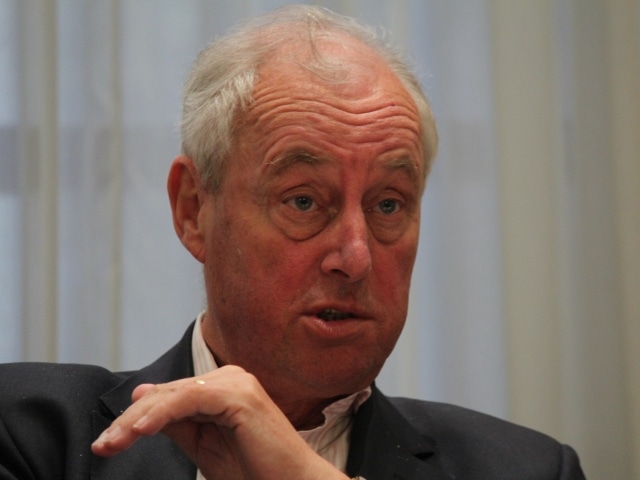The UK Conservative party has a climate sceptic problem warns Tory MP Tim Yeo, current chair of the Commons’ Energy and Climate Change (ECC) committee.
There is a strong minority of open climate sceptics in the Conservative party, Yeo told Leo Hickman, editor of Carbon Brief. This is mainly due to the party’s age profile, he said, as it has a higher proportion of older MPs compared to the Lib Dems and Labour.
“There’s a very strong representation of older people, of, I have to say it, of older, white males, actually,” Yeo said. “That’s the group who seem to have the most difficulty in understanding the science and accepting the urgency of the case. So it’s just that that group is a bit more strongly represented.
“But I think, I mean you know, to be brutal, they’re going to die off. Very few people under the age of 40 now, I think, seriously question the science, and that group is gradually taking over.”
Yeo continued: “So, although it’s a frustration, I’m not too alarmed about it, I think it will deal with itself naturally.”
Few Green Tories
The ECC chair also voiced concern that so few green Tories are standing at the next election. In addition to Yeo – who is standing down as an MP after being deselected by his local party members in 2013 – Greg Barker, Laura Sandys and Charles Hendry will not be running in the May general election.
“It’s certainly unfortunate that several of the people who’ve been in the forefront of promoting a greener approach are standing down,” Yeo said.
One reason it may be so hard to champion green issues in the Conservative party could be grassroots activists Yeo noted. “It hasn’t been easy in as much as I think some of the activists, conservative activists at grassroots, are among the less convinced – if I can put it – about the urgency of dealing with climate change, and, therefore, that doesn’t make it easy for people with a very strong green commitment necessarily to, you know, make a big case for it.”
Framing climate change as an economic opportunity might help to garner more Conservative support, Yeo suggested. For instance, he argued that Britain has the potential to be a leader in low-carbon technology investment.
“As far as the Conservatives are concerned, we should be clear that, first of all we must confirm our acceptance of the science of climate change,” Yeo concluded. “We must say that there will have to continue to be very challenging carbon budgets, we won’t flinch from the consequences.”
You can read the full interview with Tim Yeo on Carbon Brief. Other highlights include Yeo’s views on fracking (“By the late 2030s we won’t need to be fracking in this country, but for the time being, I think it’s better than not doing so”), the Paris COP negotiations, and investing in solar (“I think I’d put a decent chunk into solar”).
Photo: Wikimedia Commons
Subscribe to our newsletter
Stay up to date with DeSmog news and alerts






